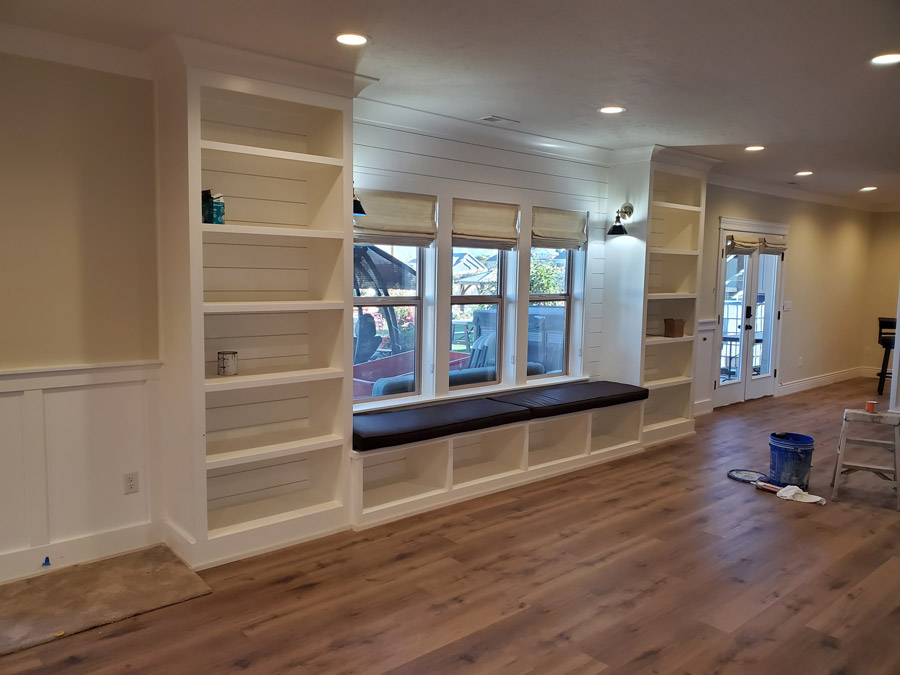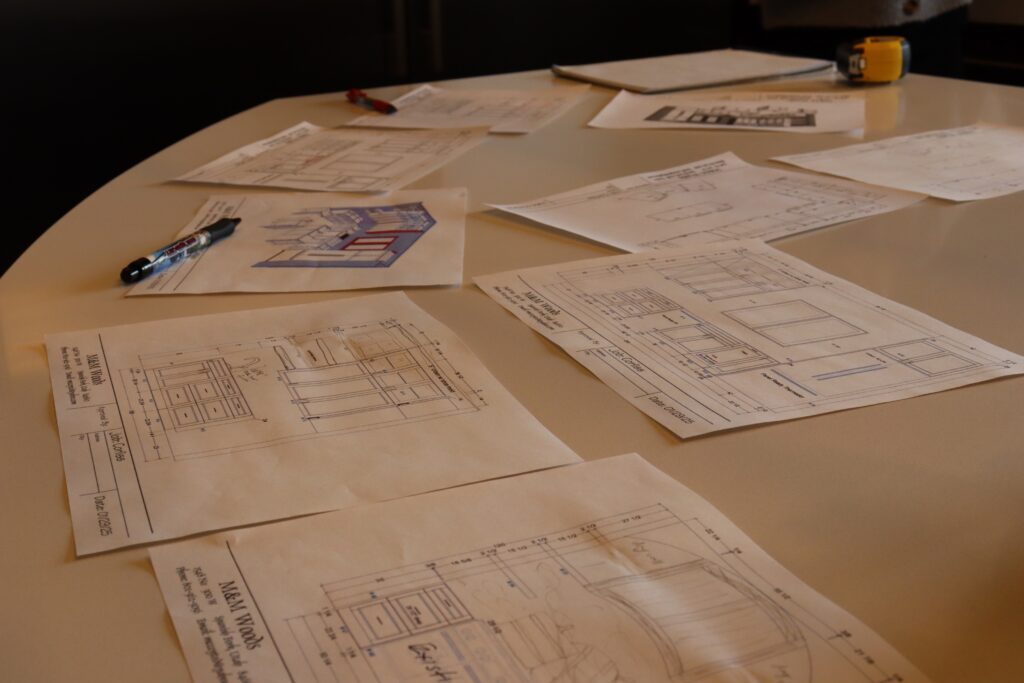1. Why Your Contractor Choice Makes or Breaks the Project
You finally decide to finish that dark, dusty basement. You hire “Uncle Bob’s Handyman Services” because the quote looks $5K cheaper. Two months later, your drywall’s bubbling, the egress window isn’t to code, and the city inspector just slapped a red sticker on your door. Cue panic.
The contractor you pick is the single biggest factor in whether your basement adds value or becomes an expensive, mold‑infested regret.
A legit basement contractor:
- Knows local code like the back of their calloused hand.
- Manages subs and timelines so you don’t play babysitter.
- Protects you with permits, warranties, and insurance.
A bad one? You already know.

2. 14 Must‑Check Credentials Before You Sign Anything
Trust but verify.
- License Number & Classification
- Utah requires an S220 or B100 classification for structural basement work.
- General Liability Insurance (≥ $1M)
- Ask for the certificate. Actually call the carrier.
- Workers’ Comp Coverage
- If they have employees on site, you’re protected from lawsuits.
- Bonding
- Extra layer if they disappear mid‑project.
- Better Business Bureau Rating (A‑ or higher preferred)
- Relevant Trade Licenses (electrician, plumber, HVAC subs)
- OSHA Safety Record
- Fewer violations = lower risk for you.
- Portfolio of Recent Projects
- Pics from 2015 don’t count. Look for the last 12 months.
- Local References (3‑5)
- Call them. Ask, “Would you hire them again?”
- Detailed Scope of Work (line‑item estimate)
- Vague bids = overruns.
- Payment Schedule Tied to Milestones
- Never 50% up front.
- Permit Pulling Plan
- If they tell you to pull the permit, walk away.
- Communication Protocol
- Weekly emailed updates? Shared Trello board? Slack? Know before.
- Warranty Terms
- Minimum 1 year on workmanship; longer on structural.

3. Red Flags That Scream “Run!”
- Cash‑only deals (“We’ll knock off the sales tax.” Uh‑huh.)
- No physical address — just a Gmail and a pickup truck.
- Pressure discounts (“Sign today, save $2,000!”)
- Refusal to list subs or provide copies of licenses.
- No permits needed claims. Spoiler: finishing a basement always needs permits.
- Quote is 30% lower than everyone else. They’ll make it up in change orders.
4. Smart Questions to Ask in the First Meeting
- How many basements have you finished in the last year?
- What’s your projected timeline for my scope?
- Who will be my day‑to‑day point of contact?
- How do you handle surprises behind the walls?
- Can I see a live job site?
- What’s included vs. optional upgrades?
- How do you protect the rest of my house from dust?
- What’s your clean‑up and debris removal process?
5. Cost, Quotes & Contracts — Getting Apples‑to‑Apples Pricing
Typical Cost Ranges in Utah
- Bare‑bones finish (framing, drywall, basic electrical): $45–55 per sq ft
- Mid‑range (bathroom, LVP flooring, rec room): $65–90 per sq ft
- High‑end (wet bar, theater, custom cabinetry): $100–150 per sq ft
Pro Tip: Demand a line‑item estimate. If “Electrical” is one line for $12K, ask for the panel upgrade, lighting, outlets, and rough‑ins broken out.
Payment Schedule Best Practice
- 10% deposit to secure your slot
- 25% after framing
- 25% after rough‑ins
- 25% after drywall/finishes
- 15% upon final walkthrough & punch list

6. Permits, Codes & Inspections
Skipping permits might save you a few hundred bucks… until you sell the house or file an insurance claim. Your contractor should handle:
- Structural & framing permits
- Electrical and plumbing inspections
- Egress window sizing (minimum 5.7 sq ft clear opening)
- Smoke/CO detectors interconnected with main floor
Ask to see the inspection schedule.
7. Project Management & Communication
A pro contractor provides:
- Weekly progress emails with photos
- Shared calendar of major milestones
- Change order doc — nothing verbal
- On‑site supervisor name and cell
If you’re chasing updates, you hired wrong.
8. Timeline Realities (and How to Keep Them on Track)
| Phase | Typical Duration | Tips to Avoid Delays |
|---|---|---|
| Planning & Permits | 2–4 weeks | Approve designs quickly; have financing ready |
| Demo & Framing | 1–2 weeks | Clear basement access; move stored items |
| Rough‑ins (MEP) | 1–2 weeks | Pre‑order fixtures; electrician & plumber overlap |
| Insulation & Drywall | 1–2 weeks | Confirm inspection dates early |
| Finishes & Punch List | 2–3 weeks | Order flooring, doors, trim day one |
Total: 6–10 weeks for most Utah basements.
9. Warranties & Post‑Project Support
- Workmanship: 1–2 years (industry standard)
- Electrical & Plumbing: as per trade subs (usually 2 years)
- Manufacturer Warranties: flooring, paint, fixtures
- Transferability: great for resale value
Get it all in writing.
10. Checklist: Vetting a Basement Contractor in 60 Minutes
- Confirm license & insurance online.
- Read Google & Houzz reviews (look for recent 4‑ and 5‑star details).
- Scroll portfolio photos: do they match your style?
- Call one reference (yes, actually call).
- Verify at least one permit under their name this year.
- Compare line‑item bids; query low outliers.
- Check payment schedule vs. milestones.
- Trust your gut during walkthrough — sloppy job sites = sloppy work.
Frequently Asked Questions About Hiring a Basement Renovation Contractor
What licenses should a basement renovation contractor have in Utah?
In Utah, a contractor finishing basements should have an S220 (carpentry/remodeling) or B100 (general building) license. Always ask for their license number and verify it online.
How much does it cost to finish a basement in Utah?
Costs range from $45 to $150 per square foot, depending on whether you’re doing a simple finish or building out bathrooms, kitchens, bars, or theater rooms.
Do I need permits to finish a basement?
Yes — 100%. You’ll need permits for framing, plumbing, electrical, and egress. Any contractor who says otherwise is a red flag. A legit contractor will pull these for you.
What should be included in a basement contractor quote?
Every quote should have a detailed scope of work, line-item costs, start/end dates, payment schedule tied to milestones, permit handling, and warranty terms.
How long does a basement renovation usually take?
Most Utah basement projects take 6–10 weeks depending on size, complexity, and how quickly materials and inspections move. Plan for 2–3 weeks of prep and permitting before the actual build.
What are red flags when hiring a contractor?
Watch out for cash-only deals, vague quotes, no online presence, no physical address, pressure to sign fast, or contractors who say you can skip permits.
Should I or the contractor pull the permits?
The contractor should — always. If they ask you to pull the permits, it’s usually because they’re not licensed or want to avoid liability. Hard pass.
Ready to Renovate?
Picking the right contractor shouldn’t feel like roulette.
If you are looking for a basement conractor in Utah, Pro‑Worx Construction has finished 5000+ Utah basements with zero failed inspections and a 96% on‑time record. If you want a basement that adds real livable space (and value) without the headaches, request your free quote today.
Need more inspiration first? Check out our Basement Cost Guide and Top 10 Basement Design Ideas for ideas you can steal.
Pro‑Worx Construction is Utah’s go‑to contractor for basement finishes, room additions, and full‑service remodeling. We believe in transparent pricing, honest timelines, and craftsmanship that lasts.







